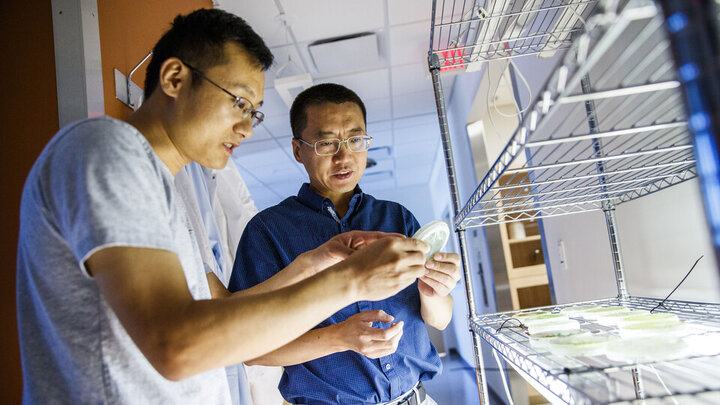The mission of NFHC is to improve human and animal health by linking agriculture and food production to wellness and disease prevention through microbiome research.
The Nebraska Food for Health Center (NFHC) was established in 2016 to serve as an organizational hub for promoting collaboration between research scientists and fundamentally linking agricultural sciences and biomedical sciences.
NFHC is broadening targets for crop improvement beyond yield and sustainability to include human nutrition and broadening targets for biomedical research beyond just drugs and pharmaceuticals to include foods designed to promote health and disease prevention. The center’s novel focus on plant breeding to improve microbiome-active components of grains and legumes enables production of ingredients and foods with highly desirable effects on the gut microbiome and ultimately, our health.
Through its specialized core facilities, collective faculty expertise, weekly meetings, and sponsored events, the Center brings together faculty from three different campuses of the University of Nebraska system (University of Nebraska-Lincoln, University of Nebraska Medical Center, and University of Nebraska-Omaha).




